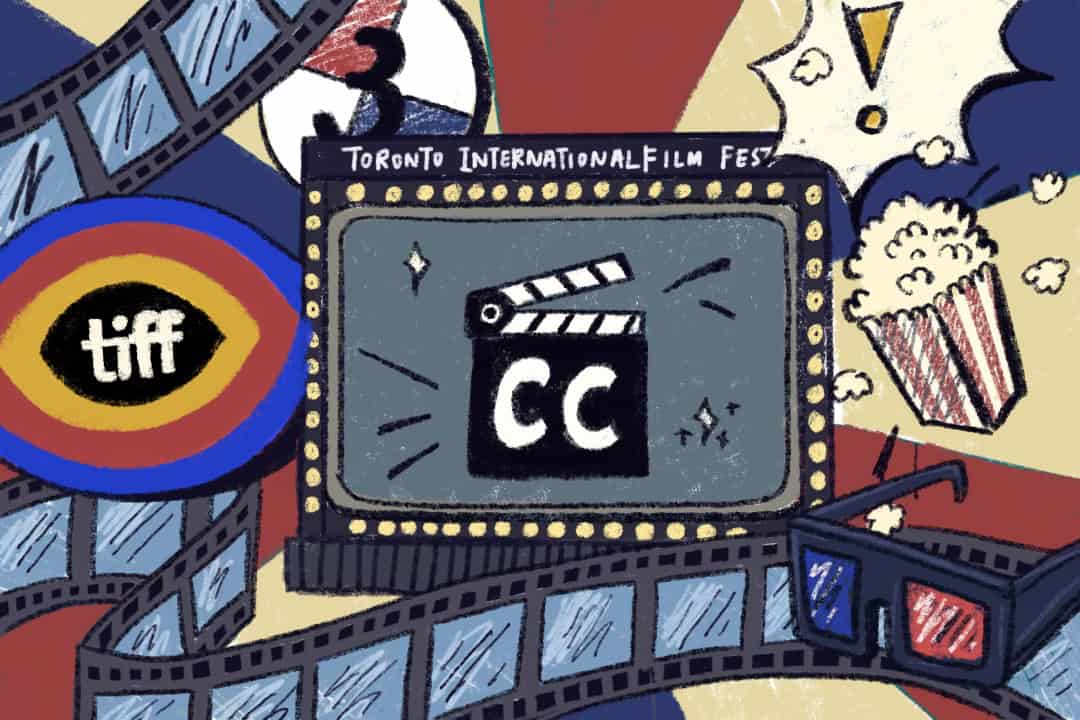On September 5, the Toronto International Film Festival (TIFF) returned for its 49th edition. Over 11 consecutive days, local and international films will be screened for film lovers and creators of all ages and backgrounds.
While film lovers and celebrity admirers are excited about one of the world’s largest annual film showcases, the festival has recently faced backlash for failing to accommodate attendees with accessibility needs.
Closed captioning controversy
Closed captioning is the display of text to aid deaf, deafened, or people with loss of hearing that includes not only dialogue but also descriptions of sound effects. As mentioned on TIFF’s accessibility page, people can request CaptiView — a personal listening device that can be requested from their Box Office or Front of House staff.
The portable device, with a small screen for viewing the film with closed captioning, features ‘shutters’ to prevent disturbing others watching the film.
Advocates have been urging TIFF to require captions for all films, as many are frustrated with the current system. In an interview with CBC, Michael McNeely, a 28-year-old film critic who experiences both vision and hearing loss, disclosed that the closed captioning devices provided at the festival were not functional.
He suggested that TIFF’s failure to accommodate its diverse audience as a leader of film festivals indicates that other film festivals are likely “falling behind.”
On TIFF’s website, the festival emphasizes its commitment to “treating all individuals with respect, dignity and fairness by removing physical, social and economic barriers to participation.”
Following McNeely’s experience, film critics and accessibility advocates are pushing to make captioning a requirement for movies entered into TIFF.
Current technology
Others have also shared negative experiences with the same closed-captioning technology that failed for McNeely.
In an interview with The Varsity, Catherine Dumé, a political science graduate student and former co-president of the University of Toronto Accessibility Awareness Club highlighted a few major issues with CaptiView: it is clunky and often out of sync with what is being shown on the movie screen.
“[It] looks like something that came out in the ’90s and just never became modernized,” said Dumé.
Last year, Dumé also wrote on the case for movie captions in theatres for The Varsity. Dumé wrote that she “would love to see the day when we actually have words on screen by default.”
Closed captioning on the movie screen
Kate Maddalena, a UTM professor specializing in technical communication and media studies, also called for greater accessibility as an important step in film.
Maddalena believes that film has always played a critical role in shaping our perspectives of the world.
“Cinema is lots of things… it’s a way to put on someone else’s head for a while and [see] the world in a different way,” said Maddalena in an interview with The Varsity.
When asked about the current push to mandate captioning as a requirement for movies, Maddalena expressed full support for the initiative.
“It’s not a huge ask. Film technology is so advanced — they’ve got CGI that can recreate actors.”
Maddalena also acknowledges that displaying closed captioning on the movie screen could potentially be distracting for viewers. To minimize the distraction, she believes there needs to be a balance between aesthetics and inclusivity.
Film critics and accessibility advocates hope that TIFF can learn from its past mistakes and ultimately become a driving force for an inclusive cinematic experience for everyone.
Disclosure: Catherine Dumé is a Varsity contributor who has written an article on closed captioning in film in Vol. 144.



No comments to display.